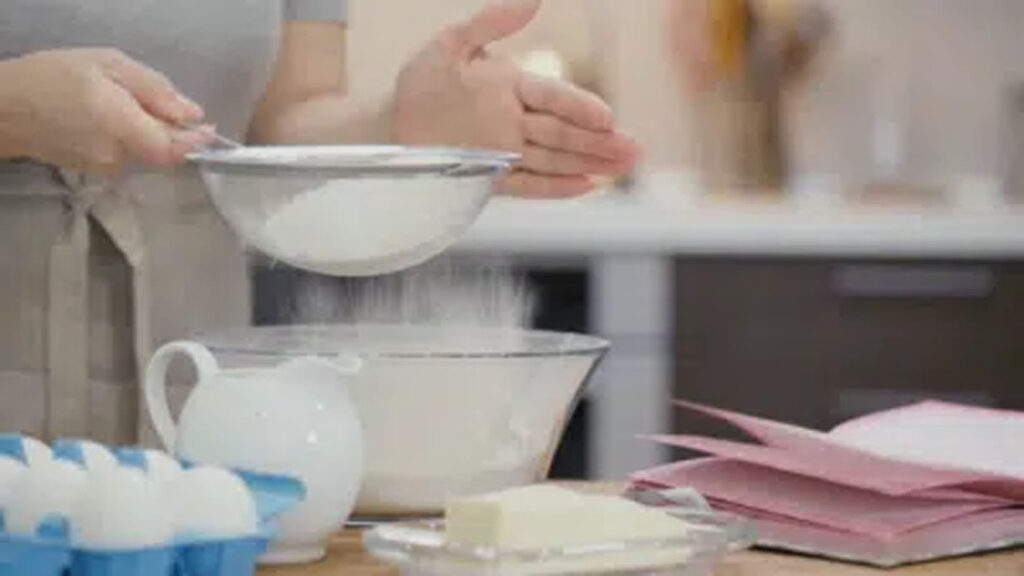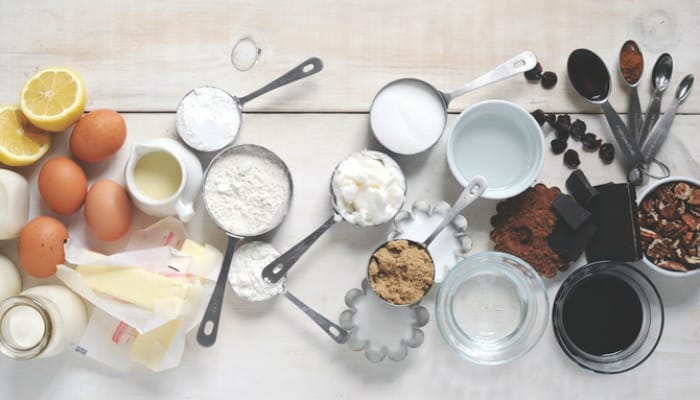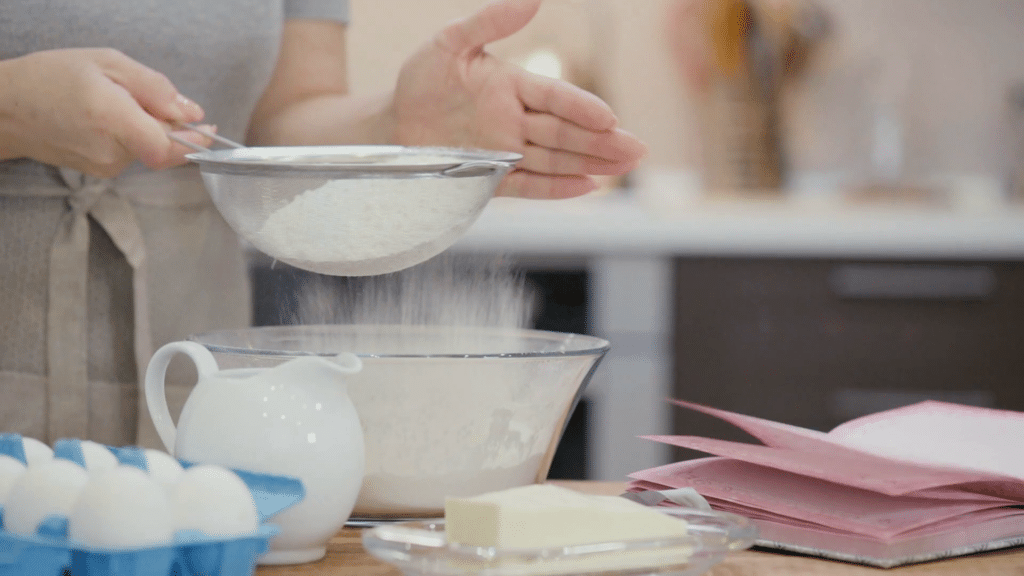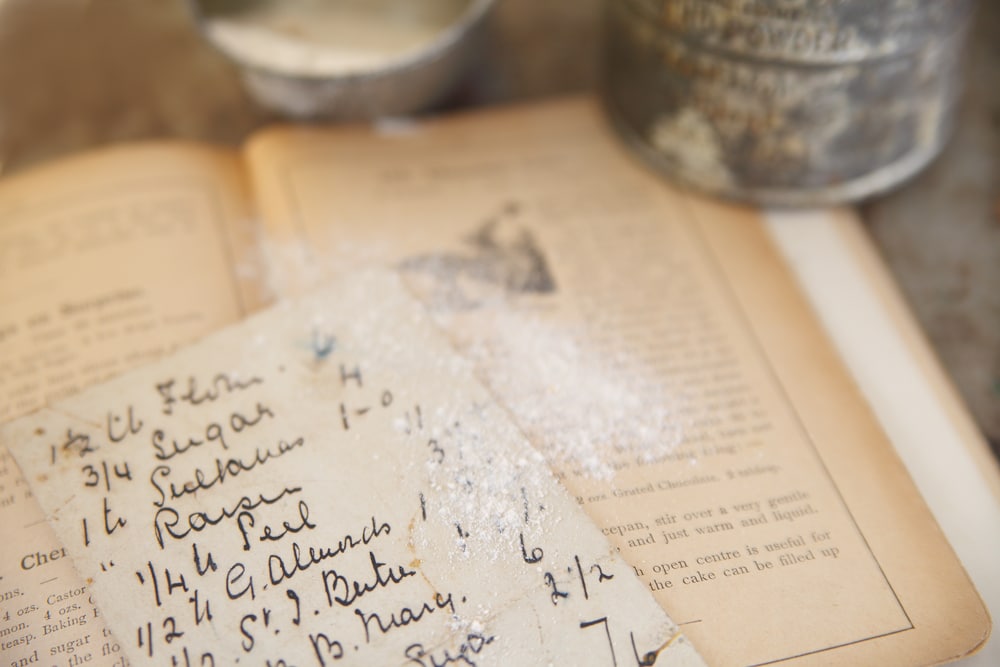
Scratch baking is an excellent way to make delicious goodies and relieve stress. For scratch baking beginners, though, it can feel overwhelming. Baking is a science, after all, especially when you’re baking from scratch. It can feel like the smallest mistake can result in your recipe not turning out right. That’s why we’re doing this series of tips for scratch baking beginners in order to help you learn the ropes so that you can face your recipes with confidence.
In Part 1, 3 Essential Tips For Scratch Baking For Beginners, we talked about the importance of having the right ingredients, how temperature matters, and how important it is to be mindful of your measurements. We also gave a brief overview of what scratch baking consists of.
In Essential Tips For Scratch Baking Beginners: Part 2, we talked about recipes and avoiding substitutions the first time around.
Read on for Part 3 of our tips for scratch baking beginners to continue learning.

Mise en place is a culinary term that means ‘everything in its place’. Essentially, this boils down to having everything prepared before you even get started on mixing your ingredients together. It’s common for scratch baking beginners to only grab their ingredients or tools as the recipe mentions them. This can cause you to miss an ingredient or to realize that you don’t have everything that you need for the recipe after you’ve already begun.
In our previous two blogs for scratch baking beginners, we mentioned ensuring having everything that you need and pre-reading your recipe. These are essential components of practicing mise en place.
Mise en place basically combines multiple tips together into one, because to be prepared before you start baking, you need to:
By ensuring that everything is prepped and ready prior to mixing your ingredients together, you give yourself a better chance of success.

This plays right into the above tip. Depending on your recipe, you may need a variety of different equipment, such as different pots, pans, and tools. This can be intimidating to scratch baking beginners and make them feel like they cannot successfully bake from scratch if they do not have the money to invest in fancy equipment.
There’s no need to throw in the towel and stick to mixes from the grocery store, though. If scratch baking is something you enjoy, you can branch out into fancy tools over time. However, if you’re just getting started, there are essentials kits and sets that you can purchase that make it easier and cheaper.
Often, the main pieces of equipment you’ll need as a scratch baking beginner include:
Your recipe should tell you what equipment you need in order to make it, but it likely won’t list equipment like it does the ingredients. This is part of why pre-reading your recipe is so important. While you can improvise, you’ll see better results if you use the right equipment.

Scratch baking beginners often avoid using salt, even if the recipe calls for it. It’s common for people to worry that if you use salt in baked goods, it will throw off the taste. People also worry about salt and their health, and feel that if they use salt in their recipes that they are making them incredibly unhealthy.
You don’t need to be afraid of using salt in your baked goods. The amount of salt that baked goods call for is far less than how much fast food places use on their fries and the like. Indeed, too much salt can ruin your baked goods. However, if you use just the right amount that the recipe calls for? It can take your baked goods to the next level.
This is because salt is a flavor enhancer. It counteracts bitterness and brings out the flavors of your ingredients for a more delectable dish. You shouldn’t be able to taste a salty flavor in your baked goods – if you do, you’re likely using too much. Rather, salt can add complexity and depth to the flavors of your baked goods.
Kitchen Kneads provides the high-quality ingredients and equipment you need for your baking ventures. We also provide cooking classes for bakers of all levels, including beginners. Feel free to look through our site for anything you may need, and contact us with any questions that you may have about our products or our cooking classes.

Kitchen Kneads is your one-stop shop for quality grains, flour, kitchen appliances, and other ingredients.
We are Utah’s premier baking and cooking resource!
Questions?


Kitchen Kneads is your one stop shop for quality grains, flour, kitchen appliances and other ingredients. We are Utah’s premiere baking and cooking resource! Questions?
888-881-9957
info@kitchenkneads.com
2022 | Kitchen Kneads | All Rights Reserved | Privacy Policy | Terms | XML Sitemap | Site by PDM